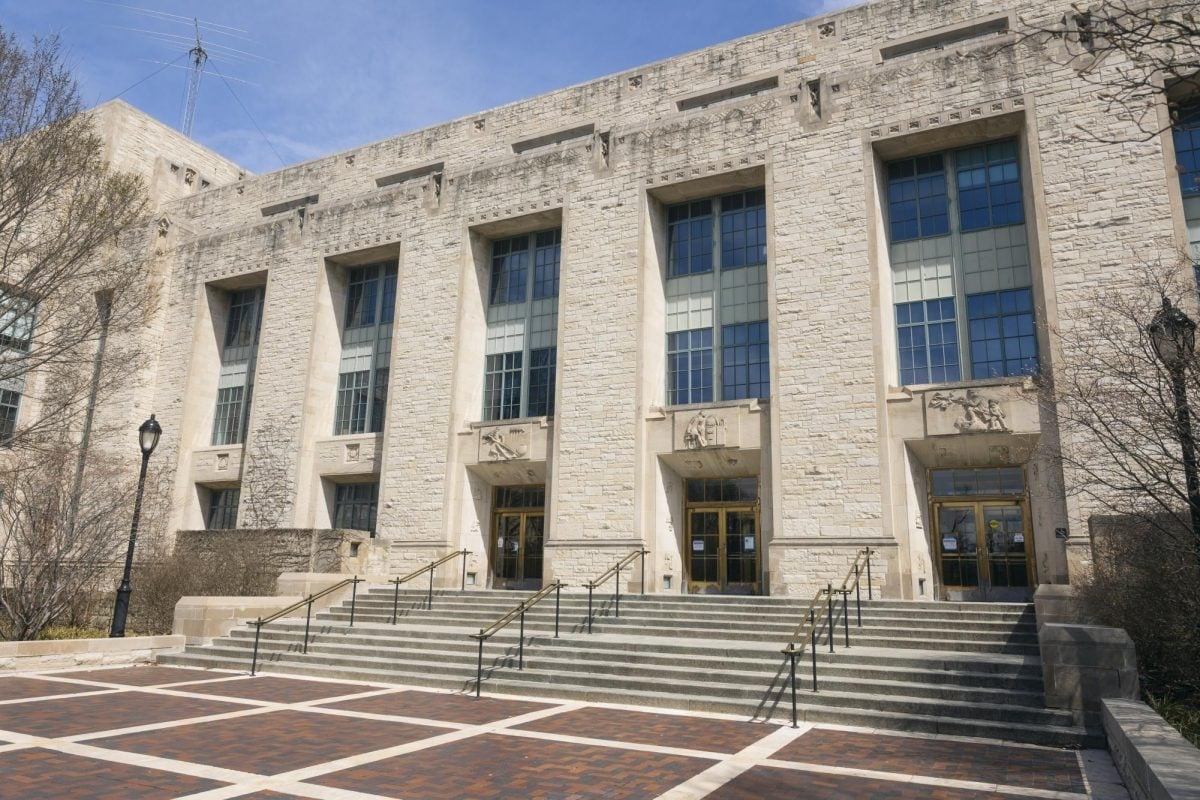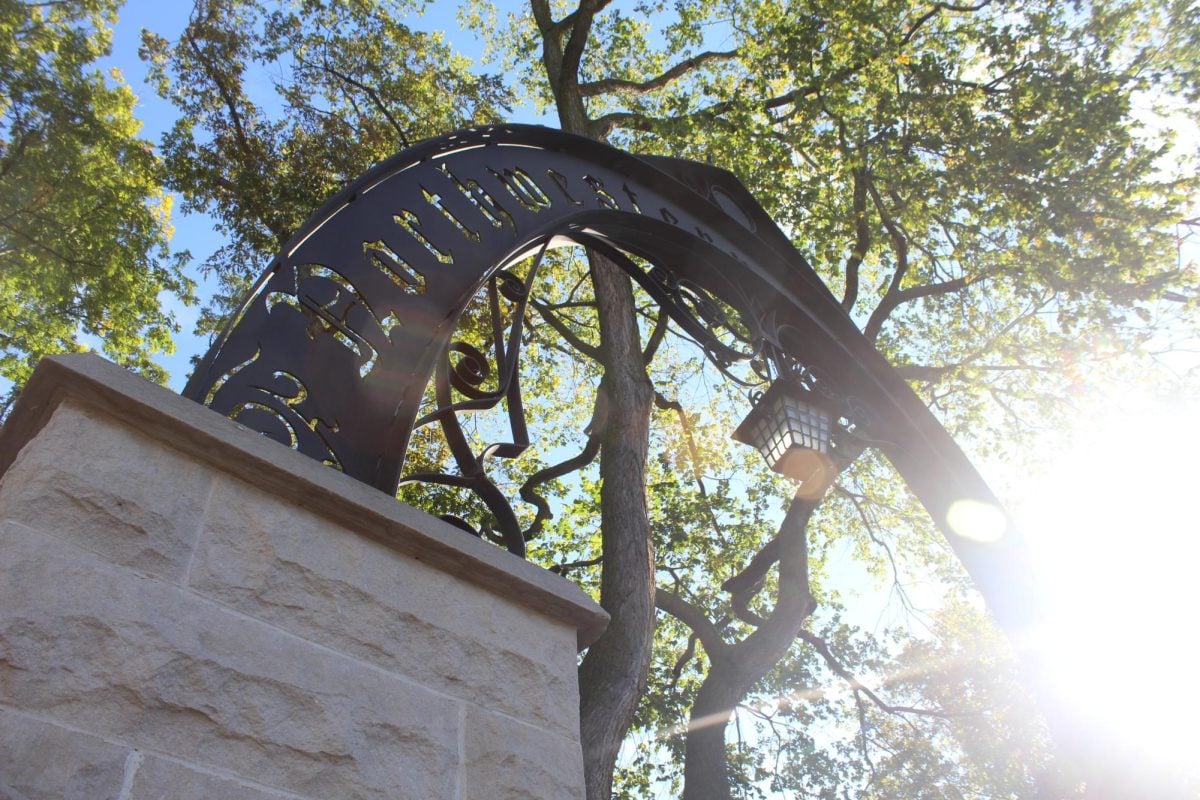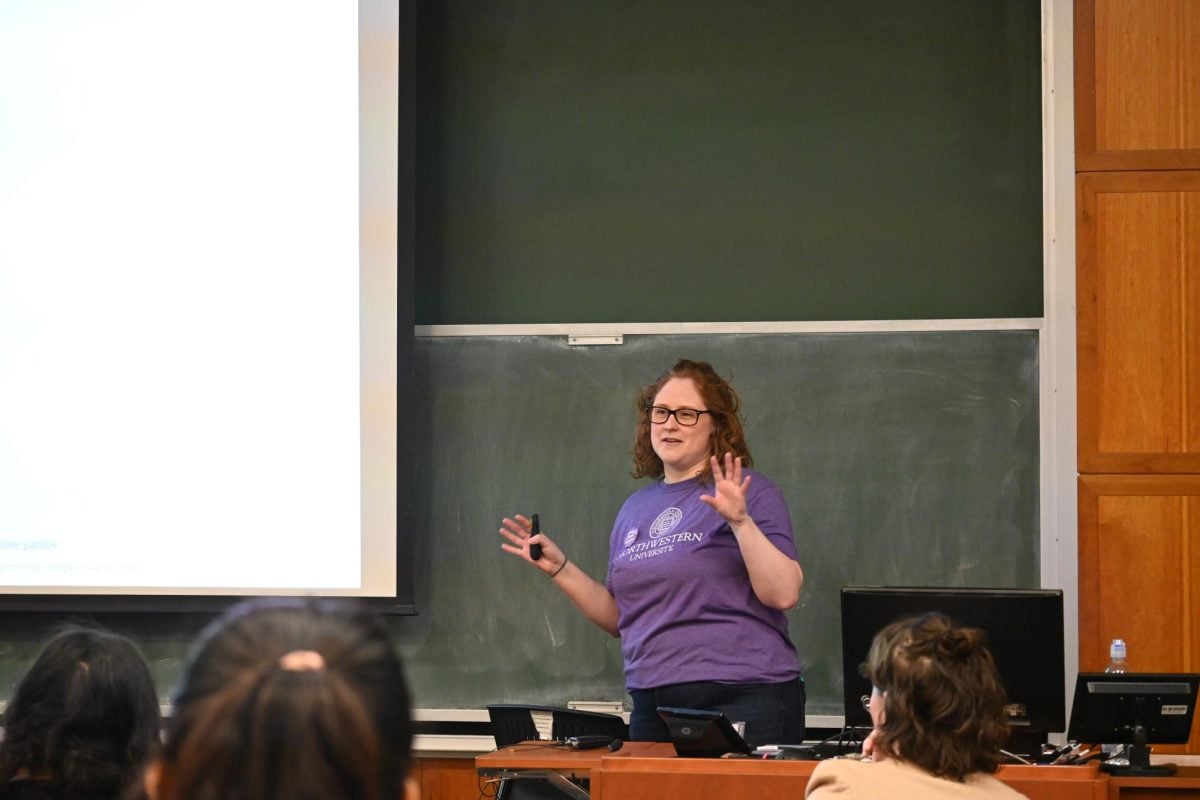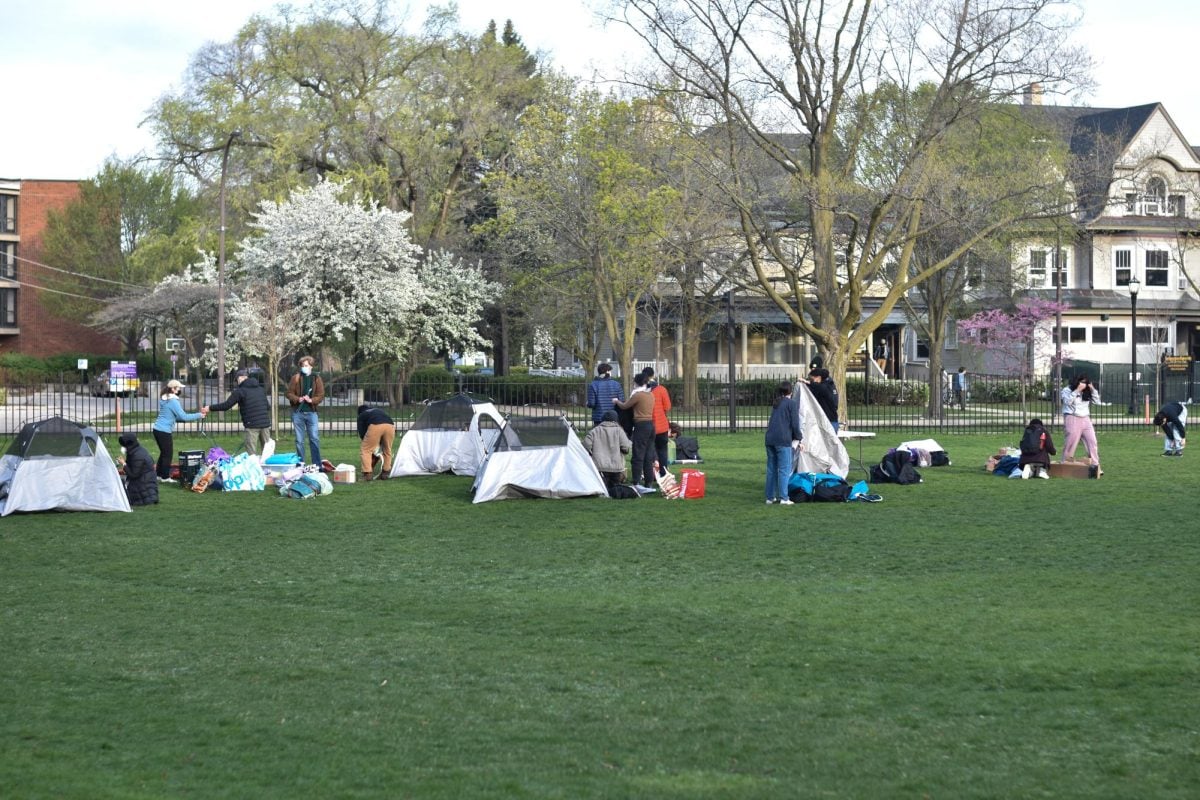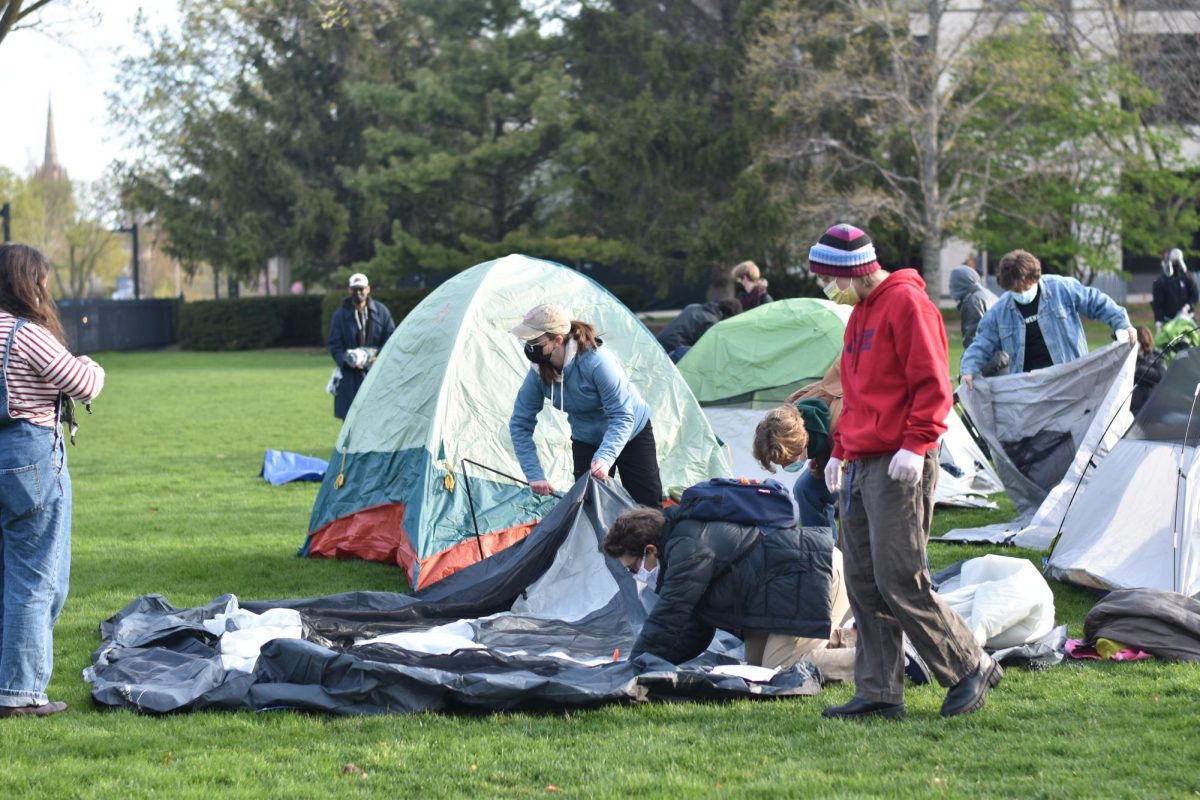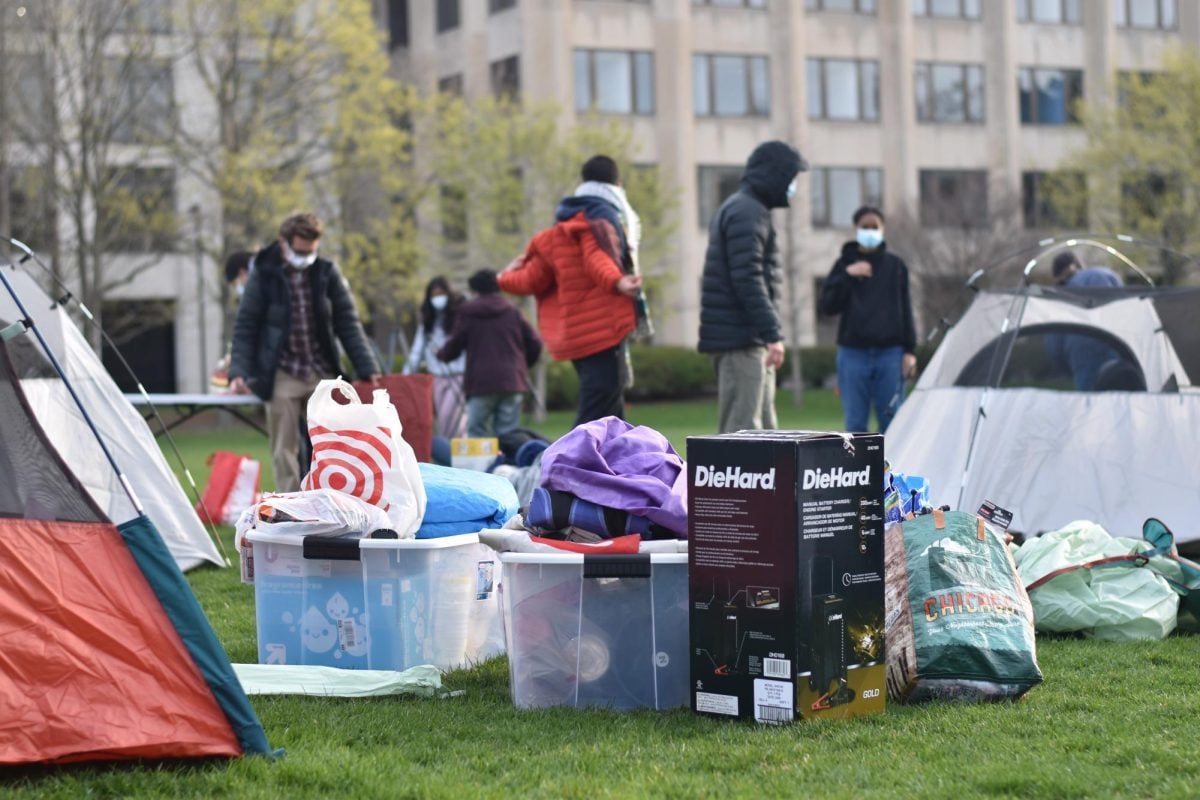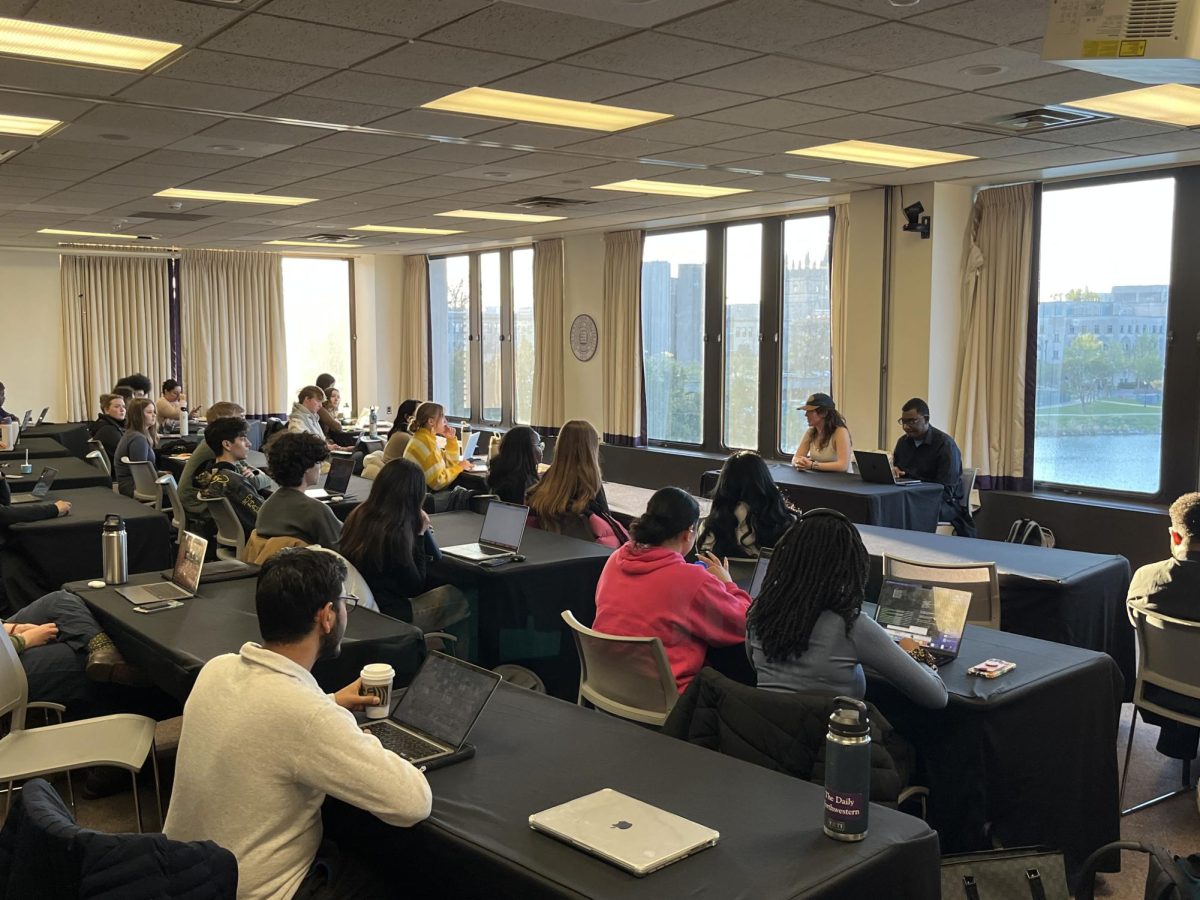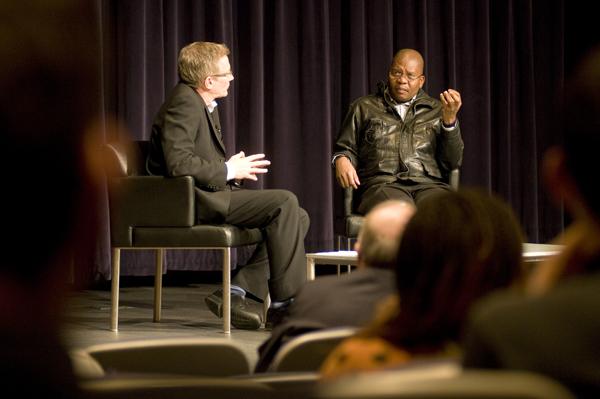
South African journalist Mondli Makhanya spoke Thursday about corruption, government and the media in a conversation with the Medill School of Journalism, Media, Integrated Marketing Communications.
Makhanya spoke onstage with Medill Prof. Douglas Foster to professors and a handful of journalism students, including six who will study in South Africa next quarter, in the McCormick Tribune Center Forum. The question-and-answer session was organized by Prof. Loren Ghiglione, director of Medill’s South Africa Journalism Residency program, to celebrate the partnership’s 10th anniversary.
Foster asked Makhanya about numerous topics prominent in the South African media, beginning with the rise of democracy, which Makhanya called the “miracle of 1994.”
In his introduction, Ghiglione told the audience Makhanya grew up during the height of apartheid in South Africa, choosing at the age of 19 to pursue a journalism career at the Weekly Mail, a paper that often exposed government corruption despite the constant threat of censorship.
“Growing up during that period … the media was silenced, journalists were going to jail, newspapers were being shut down,” Makhanya said. “As a black person … you could only go so far. What 1994 meant was that (South Africa) did become a country of opportunities.”
But he emphasized that South Africa still faces the challenge of helping “people who got left behind even in the democratic society.” He told an anecdote of a brilliant female childhood classmate whose “life basically stopped” when her family could not afford schooling, forcing her to get married early.
Another prominent topic Makhanya touched on was his experience covering African National Congress leader and current South African president Jacob Zuma. Makhanya had been editor of Mail & Guardian, which reported on Zuma’s corruption, and The Sunday Times, which broke the story of Zuma’s 2005 rape charges.
The latter was a risky story, Makhanya said as he recalled the editorial meeting where he had made the decision to run the story. He called it the “heaviest decision I have ever had to make.”
“I think we have given the nation and the world a sense of who he is,” Makhanya said. “It was about service to the public and service to the country.”
Makhanya also commented on the current political environment in the United States, which he said is characterized by a “meanness of spirit.” He expressed confusion about the “intensity” of the American gun debate and said of United States politics that “there seems to be something very toxic and poisonous in the air at the moment.”
Foster’s final point of discussion involved the coverage of crime in South Africa in light of South African Paralympic Oscar Pistorius’ recent murder charges. News broke Thursday that Pistorius, a double leg amputee sprinter, had been charged with the murder of model Reeva Steenkamp.
Makhanya criticized foreign media outlets for what he considered to be unrealistic representations of violence in his country. However, he acknowledged that all media was still learning to “cover crime in much more mature ways.”
“How is it that we, as the media, without being part of the story, are being part of the solution?” he asked.
Students in the audience reacted positively to Makhanya’s speech, especially his insight on South African media.
“Our media has as much to learn from South Africa as South Africa has to learn from us,” said Medill senior Zach Wichter, who completed his Journalism Residency in South Africa last year.
Wichter also agreed with a point Makhanya had made about keeping a wall between the editorial and business sides of journalism.
Medill senior Kathryn Nathanson, who also participated in the South Africa program, said she enjoyed Makhanya’s discussion on crime and violence.
“Sometimes we can brush it off and report stories lightly,” she said. “But I think South Africa does have a really great handle on reporting violence. We could maybe take it more seriously … South Africa takes the crime and violence and makes it really known.”


